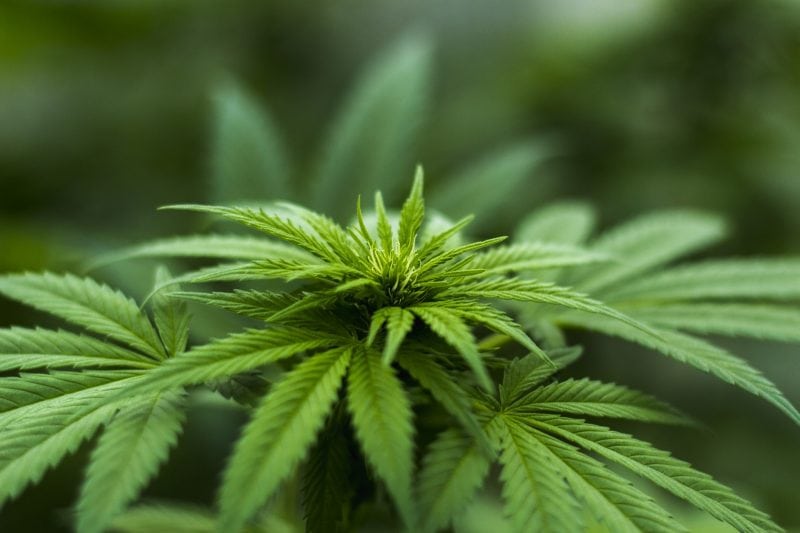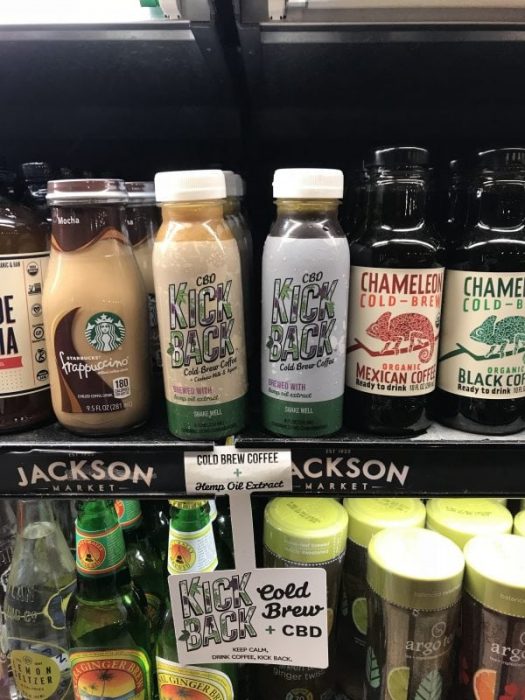
Marijuana is slowly becoming legal in some forms across the United States. Emerging research is showing that the components of it, like CBD, could be helpful for a variety of treatments such as anxieties.
Marijuana exists in a state of flux in the United States because it is currently illegal by the federal government, but many states are slowly passing legislation to make it legal for medical and/or recreational use. Numerous anecdotal evidence has shown that it has been a safer and beneficial drug compared to smoking and other drugs.
Moving beyond the anecdotes that have helped it gain recognition as a useful compound, numerous studies into the drug and its components have emerged and continue to emerge showing that it may have potential use in treating numerous physical and psychological problems.
While smoking marijuana is becoming commonplace, many want to reap the benefits of the drug without the high. It would not be appropriate to get high during work just as it would not be right to get drunk. Fortunately, marijuana contains two components that can be separated and used for the same benefits.
The two components of marijuana are cannabidiol (CBD) and tetrahydrocannabinol (THC), which is the psychoactive component of the drug.
CBD And Anxiety
CBD has gained prominence as an alternative to using regular marijuana because it is the non-psychoactive component of the drug. It is marketed as something that can ease pain, anxiety, and other problems without the high of marijuana, which might disrupt someone’s day.
It is estimated that the CBD industry is worth around $200 million, which represents more than double as it has grown over the last few years. The growth speed of this industry represents a great demand that it is now fulfilling, but it also represents the growth of an underresearched industry.

For those states that have legalized marijuana for recreational use, there are many products emerging that use only CBD. The growing industry is supported by a large demand for this non-psychoactive component. Credit: Wikipedia/Deceptitom, image licensed under CC-BY-SA 4.0 https://creativecommons.org/licenses/by-sa/4.0/deed.en
Much of the benefits of CBD comes from animal research, whose results can be drastically different in humans, and human studies based on only short-term usage.
Dr. Esther Blessing, a researcher at New York University, believes that there is good evidence to support that CBD may have potential as an anti-anxiety and addiction treatment, but more research is needed.
One of the initial studies that caught Dr. Blessing’s attention was a small study done in 2011. It used a few dozen individuals with varying levels of social anxiety to gauge the effects of CBD. In this initial study, the individuals had to give a public speech to a large audience in two groups: those given CBD and those given a placebo.
The findings were that the individuals given CBD reported less anxiety versus the individuals given the placebo. Using funding from the National Institute of Health, Dr. Blessing and her team are beginning a clinical trial to test CBD’s effectiveness against post-traumatic stress disorder (PTSD) and alcohol use disorder (AUD).
The trail will have 50 participants who all have PTSD along with AUD. They will be broken into two groups. The first group will be the placebo group and the second group will be given 400 milligrams of CBD daily.
The trail will use a pharmaceutical-grade CBD rather than available supplements because supplements are widely varied and not regulated like drugs. The pharmaceutical-grade CBD will offer a more reliable sample.
The goal of this trial is to determine the ability of CBD to treat AUD in individuals with PTSD by seeing if continued usage of CBD will lead to reduced alcohol intake.
Other Research
Yasmin Hurd, director of the Addiction Institute at the Mount Sinai School of Medicine, has a phase 2 clinical trial exploring the ability of CBD to prevent relapse in individuals with opioid addictions. The study hopes to show that CBD can reduce cravings for the drug.
Dr. Robert Carson, a pediatric neurologist at Vanderbilt University, has studied the effects of CBD on children with seizures and have found that it can offer positive benefits to them. He hopes that his research and others can push the FDA towards approving pharmaceutical-grade CBD because the supplements are widely varied and cannot be trusted as a reliable source.
CBD Supplements And Legality
Recently, a panel of advisors told the FDA that they would recommend the approval of Epidiolex, which is a pharmaceutical grade CBD. This drug would be used to treat seizure disorders in children, which is the hope of Dr. Carson.
The push towards getting an approved pharmaceutical grade CBD helps with two main goals. The first is legality. Currently, the Drug Enforcement Agency (DEA) classifies CBD as a Schedule 1 substance. This means that, according to the federal government, the drug has no currently accepted medical use and can be abused.
If the FDA approves any CBD drugs for medical use, it runs counter to the claims of the DEA and can be used to raise awareness of the positive benefits of CBD. This can then be used to drive the legalization of the substance on state or federal levels.
The approval would allow, ideally, push CBD supplements towards becoming more standardized and reliable as they would now have to compete with FDA approved and researched alternatives. Right now many people get their CBD in various forms, including pure oils, that can contain a myriad of components aside from CBD. The products can also have various levels of CBD.
Legalization, FDA approval, and continued medical research into CBD and other parts of marijuana would go a long way of providing accurate and reliable information that consumers can use to determine if these products are what they need or want. These factors would also allow sound research and their results to take the place of anecdotal evidence that was used to drive the intial success of marijuana.









